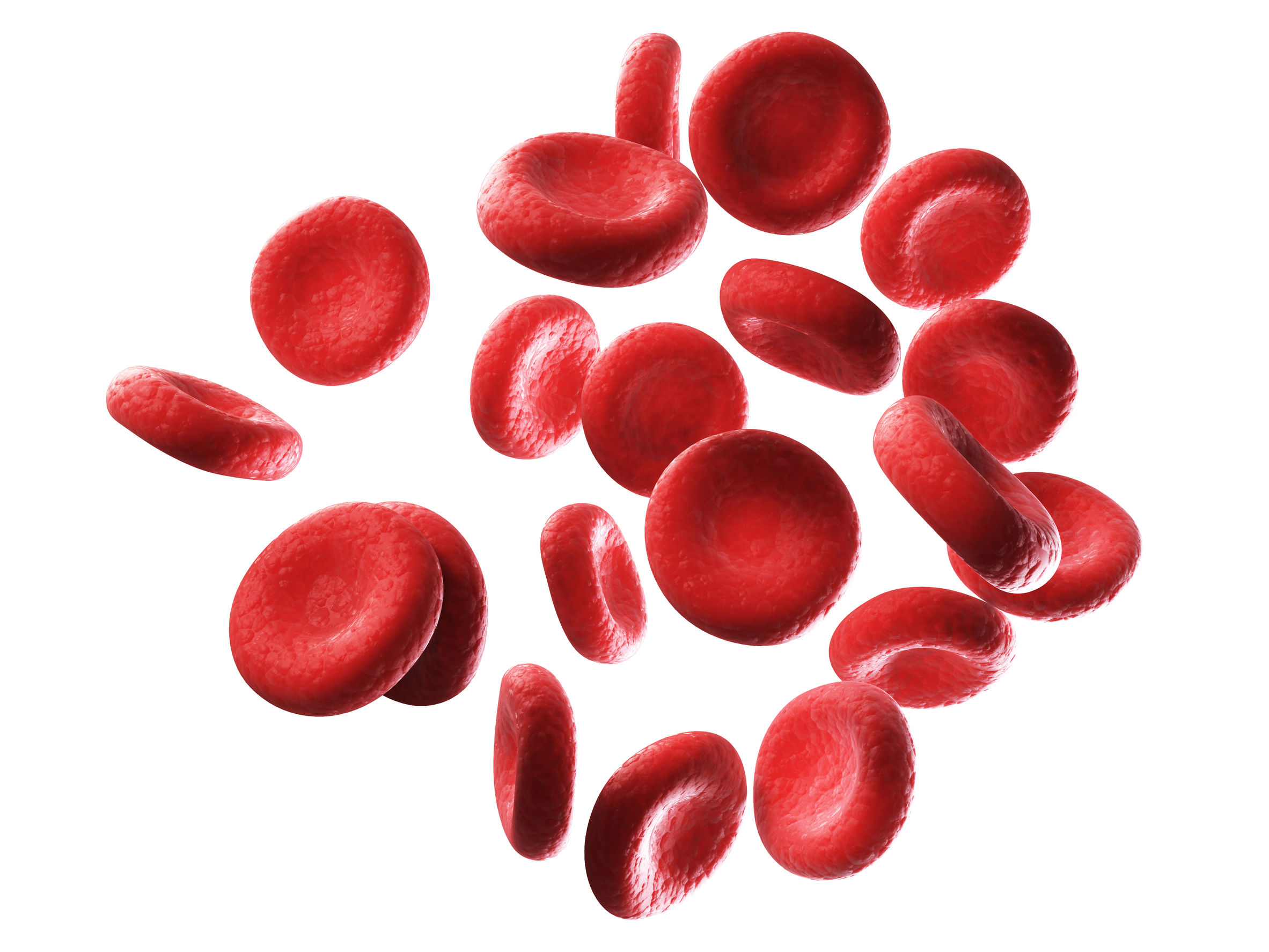
September’s Topic of the Month – Getting a Diagnosis of Lupus
 October 03rd, 2017
October 03rd, 2017 Nakita Cambow
Nakita Cambow Blog
Blog 0 Comments
0 Comments
Diagnosing lupus is often difficult. It is a condition that can mimic other illnesses and presents with different symptoms in each person. Results from a survey of LUPUS UK members found that the average time taken for getting diagnosed with lupus from the onset of symptoms was over seven years.
I think I have symptoms of lupus. What should I do?

In the first instance, if you are unwell or experiencing unexplained symptoms you should make an appointment with your GP to discuss them. If your GP feels that further investigations are needed to find the cause of your symptoms, they will request tests and/or refer you to a specialist.
“I only got a diagnosis and referral to rheumatology because I recognised I had a connective tissue disorder. I had to beg the GP for weeks to do the ANA test; even if it came back negative it would put my mind at rest because I was very scared of it being lupus. He told me to go to the gym! I didn’t see him after the test results came back strongly positive but I saw another doctor who referred me to rheumatology. This was after seven years of struggling with disbelieving doctors. I gave up several times to try to find a diagnosis.”
Some people with lupus may develop symptoms gradually over a period of weeks, months or years. This can contribute to a delay in diagnosis, especially if the GP is looking at each symptom in isolation. If you feel that you have multiple symptoms which are common in lupus and are otherwise unexplained, it may be helpful to ask for a longer appointment when you are booking to ensure that you have sufficient time to discuss them all.
If you need any tips on how best to prepare for an appointment with your doctor to discuss the possibility of lupus, please take a look at our blog article ‘Getting the Most from your Medical Appointments’, HERE.
“Be persistent; don’t let a GP treat repeated incidents of the same symptoms as separate things. Remind them that it is ongoing and press for a referral to a specialist. GP’s are very general in their experience and may not often be able to pin-point a specific condition.”
How is lupus diagnosed?
Principles of making a diagnosis
 In order for a doctor to reach a diagnosis of lupus, three essential steps are required:
In order for a doctor to reach a diagnosis of lupus, three essential steps are required:
- A detailed overview of the patient’s symptoms and past medical history
- A detailed physical examination, which includes testing the urine
- Tests – mostly blood tests but this may involve other tests such as biopsy of the affected organ(s) e.g. kidney or skin
–
Since lupus can ‘mimic’ other conditions it is often necessary to undertake tests to rule out other conditions before a diagnosis of lupus can be made with confidence.
“Like many other people, I was diagnosed initially with rheumatoid arthritis because I presented with sudden severe joint pain and inflammation. The lupus diagnosis came after maybe three years when my symptoms became more general with muscle pain and pericarditis.”
Specific ‘diagnostic’ features of lupus
The American College of Rheumatology established 11 ‘criteria’ which, if combined, strongly suggests that the patient has lupus. Of the 11 criteria listed below, a patient needs to have four or more to be classified as having lupus. These criteria were developed in 1982 and revised in 1997.
- Malar Rash
- Rash over cheeks
- Discoid Rash
- Red (sometimes circular) patches of skin with scaling
- Photosensitivity
- Skin very sensitive to sunlight
- Oral ulcers
- Recurrent crops of ulcers within the mouth or nose
- Serositis
- Inflammation of the membranes that line the lungs or heart
- Arthritis
- Affecting two or more joints – causing stiffness and pain
- Renal
- Inflammation of the filtering
 apparatus in the kidneys called the glomerulus, which leads to protein leaking out into the urine
apparatus in the kidneys called the glomerulus, which leads to protein leaking out into the urine
- Inflammation of the filtering
- Neurological
- Can affect the nerves in many different ways, such as seizures or psychosis
- Haematological
- Low levels of haemoglobin (anaemia), white cells (which help fight infection) and/or platelets (which help in blood clotting)
- Immunological-1
- Antibodies to double-stranded DNA, Sm and/or phospholipid (e.g. anti-beta2 glycoprotein 1 or lupus anticoagulant)
- Immunological-2
- Antinuclear antibodies (ANA)
–
Some people may develop criteria sequentially or gradually. In these cases where someone doesn’t meet enough criteria to confirm a diagnosis of lupus they may be termed as having ‘evolving lupus’ or a ‘lupus-like’ condition. Another term that is often used is ‘undifferentiated connective tissue disease (UCTD)’.
Making the diagnosis can sometimes be more difficult and/or delayed in either those with milder disease or those with gradual onset of symptoms, making awareness of lupus all the more important amongst healthcare professionals and the public.
“I was very sick on and off through high school and had extreme fatigue. I was tested for mono and anaemia. I got strep throat a lot and the doctors couldn’t figure out why. When I was 19 I had my first child; my joints all got inflamed and I was in a lot of pain. I had trouble dressing, lifting, opening jars, holding a pen; all while trying to look after a baby. My doctor finally sent me to a rheumatologist and I had a diagnosis that very day.”
Tests
Antinuclear antibodies (ANA) – The ANA test is positive in around 95-98% of people with lupus. However, these antibodies are also positive in many other conditions (such as rheumatoid arthritis) and even around 10% of the healthy population. Therefore this test is not specific for SLE.
Anti-double-stranded DNA (dsDNA) antibodies – These antibodies are very specific for lupus in that they are typically not seen in any other condition or in the healthy population. However, only approximately 60% of people with SLE will be positive for this test. Therefore if someone is positive for these antibodies, it often means they have lupus, but if they are negative it does not necessarily mean they do not have lupus.
Other tests – There are also other antibodies which may be helpful, like anti-Sm antibodies which are also very specific for lupus) although these only occur in around 10% of people with the disease). Testing for a protein called complement-3 (C3), which is not an antibody but still involved in the immune system, may also be helpful as low levels of C3 suggests lupus. For more information about some of the other tests used to diagnose and monitor lupus, take a look at our Factsheet ‘LUPUS: The Symptoms and Diagnosis’, HERE.
“I was one of the lucky ones I think. Initially I had discoid lupus with hair loss and patches on my face that I had a biopsy of. Two years later I had what I can only describe as a complete shutdown. I called my consultant as I had rashes everywhere and was so fatigued I could hardly function; they diagnosed me with systemic lupus within the week. I’m very grateful that I had already had a diagnosis that was a marker for lupus otherwise I think it would have taken years.”
What should I do if my GP isn’t taking my concerns seriously?
 Mutual trust and respect are very important between a doctor and patient. If your doctor does not manage your expectations well, uses medical jargon, fails to provide test results or refuses tests or referrals without a satisfactory explanation, it is easy to get frustrated with communication problems. If this is the case, then it may indicate that changing doctors could be your best course of action. If you are considering making a change, don’t take the decision lightly; you and your doctor have both invested in the relationship, and such a change will not necessarily be easy.
Mutual trust and respect are very important between a doctor and patient. If your doctor does not manage your expectations well, uses medical jargon, fails to provide test results or refuses tests or referrals without a satisfactory explanation, it is easy to get frustrated with communication problems. If this is the case, then it may indicate that changing doctors could be your best course of action. If you are considering making a change, don’t take the decision lightly; you and your doctor have both invested in the relationship, and such a change will not necessarily be easy.
If you’re not happy with your current GP, you can ask to see another doctor in the practice. You can also change GP practices, but you should discuss your concerns with the practice staff manager first.
You can change your GP at any time you wish without having to give a reason. If you tell your local Clinical Commissioning Group (CCG) that you want to change your GP, they must give you details of how to do so and provide you with a list of alternative GPs. You do not need the consent of your current GP. When you have found another GP willing to accept you, you should contact them and ask if they will take you on. You can then make an appointment to see the new GP immediately.
“It took two years to get a diagnosis and that only happened after I changed doctor’s surgery. I feel it was the GP not testing for the right things, so not necessarily their fault; more lack of education about lupus. My new GP did the correct blood tests, I was then referred to a rheumatologist and the rest is history.”
What will happen when I see the Rheumatologist?
Most lupus patients are under the care of a rheumatologist, a doctor who has spent many years specialising in the study of rheumatism, arthritis, and other disorders of the joints, muscles, and ligaments.
“If you’re waiting a long time for your appointment you can ring the clinic and ask to be put on the cancellation list. If very poorly, you can ask your GP to contact them to see if you could be seen sooner.”
 You may get a firm diagnosis during your first visit, but lupus and some of its associated conditions can be difficult to diagnose. No single test can tell you if you have lupus or one of these other conditions so you may need further tests and visits to reach a diagnosis.
You may get a firm diagnosis during your first visit, but lupus and some of its associated conditions can be difficult to diagnose. No single test can tell you if you have lupus or one of these other conditions so you may need further tests and visits to reach a diagnosis.
We suggest that you think about and make a note of everything you want to know before your first visit to see the specialist. This will help to ensure that all of your questions are answered during the consultation. It might be helpful to take a friend or family member with you too, as they may remember things afterwards that you didn’t take in. For tips on making notes/lists and other ways to get the most out of your appointment, please read our blog article ‘Getting the Most from your Medical Appointments’, HERE.
“I would advise people to keep a record of their symptoms (LUPUS UK do a good Progress Diary HERE). Don’t forget to note things like aches and pains in joints or muscles (and/or how much over the counter pain meds you need to take). Check to see if you get worsening symptoms such as fatigue after being in the sun, as not all of us get a typical lupus facial rash but we are sun sensitive in that UV light/sun can give us flare ups. It’s also worth keeping a record of just how well you sleep (or not) and just how fatigued you feel (does it impact upon other activities, do you only work and sleep and can’t manage anything else).”
Your consultant may decide to start you on some treatment to help manage your lupus and alleviate your symptoms. It is important to start treatment as soon as possible to enable you to have better control of your life and help to prevent any complications developing. You can learn more about the medications used to treat lupus in our Factsheet ‘LUPUS and Medication’, HERE.
What can I do if I am unsatisfied with my rheumatologist’s opinion?
If you are unsatisfied with the diagnosis and treatment plan set out by your rheumatology team, you may wish to ask for a second opinion. You can ask your GP, consultant or hospital unit for a second or further opinion (an opinion about your health condition from a different doctor).
Although you don’t have a legal right to a second opinion, a healthcare professional will consider your circumstances and whether a second opinion is needed. If you would like a second opinion after seeing a consultant, you can discuss this with them directly or with the hospital unit.
People living in England could also contact the hospital’s Patient Advice and Liaison Service (PALS) if you have any concerns or complaints. You can find your local PALS HERE.
People living in Scotland can contact the Patient Advice and Support Service. Learn more about this service and how to contact them HERE.
People living in Northern Ireland can contact the Patient and Client Council. Learn more about this service and how to contact them HERE.
People living in Wales can contact the Patient Support and Advisory Service. Learn more about this service and how to contact them HERE.
You’ll usually need to go back to your GP and ask them to refer you again. If your GP agrees to refer you to a new consultant, the consultant will be told that this is your second opinion. They’ll also be sent any relevant test results or x-rays previously carried out. This doesn’t mean the new consultant will automatically take over your care. If you want to be treated by the new consultant, this needs to be arranged with the doctors and hospital.
If you need information about consultants in your area who have a specialist interest in lupus, you can contact us. You can also ask other people with lupus for their recommendations on our HealthUnlocked forum or through our Regional Support Groups.
I’ve recently been diagnosed with lupus. What happens next?
There is no doubt that being told you have lupus can be a very stressful period of your life. Lupus is a long-term health condition that can be unpredictable, where symptoms can be worse during certain times and you may feel overwhelmed by how many parts of your body are affected. This may impact on your life in a variety of different ways, depending on the symptoms.
After you have received your diagnosis you may need some time to understand the symptoms yourself and know when you may need to access help. Some rheumatology units now have a dedicated lupus nurse specialist who will provide support and advice.
Some people may be pleased to at last know what is wrong with them and for others it can be a very worrying and scary time. Although currently incurable, lupus is a condition that can be managed with treatment and it responds to medication in the majority of cases.
“At first I was relieved to finally get a diagnosis! It had taken so many doctors who told me that it was all in my mind etc. I knew there was something horribly wrong. Later I started grieving for myself and didn’t want anyone else to know because that made it more real and I needed more time to digest all of the information. Over time it got easier and I learnt to live life one day at a time.”
 When you have been told you have lupus, you may feel quite alone and frightened. Some people feel angry and confused, not only because this has been unexpected, but also because it changes things for the future. The future is unknown for everyone, but when diagnosed with a long-term health condition like lupus, you automatically begin to ask questions and require answers. Sometimes the answers are not what you want to hear and it may take some time for you to come to terms with not only your diagnosis, but also the impact of treatments and possibly limitations on your lifestyle. All these feelings, worries and concerns are normal. Do not be afraid to ask for help from your doctors or nurses; for some this can be a traumatic time that may require expert advice and counselling.
When you have been told you have lupus, you may feel quite alone and frightened. Some people feel angry and confused, not only because this has been unexpected, but also because it changes things for the future. The future is unknown for everyone, but when diagnosed with a long-term health condition like lupus, you automatically begin to ask questions and require answers. Sometimes the answers are not what you want to hear and it may take some time for you to come to terms with not only your diagnosis, but also the impact of treatments and possibly limitations on your lifestyle. All these feelings, worries and concerns are normal. Do not be afraid to ask for help from your doctors or nurses; for some this can be a traumatic time that may require expert advice and counselling.
“My consultant told me he was surprised at how well I took the news but, as I said to him – there’s no point in stressing about something you can’t change. I simply had to accept the diagnosis and adapt my life. Having said that, I was determined not to let lupus rule my life and so far it hasn’t. You simply have to learn when to give in temporarily.”
Your rheumatologist will supervise your medical care and liaise with other specialists whenever needed. Some hospitals run combined clinics to reduce the amount of appointments you have to attend and to help doctors combine their specialist areas of expertise. You may also see a specialist registrar who is a consultant-in-training and an important part of the medical team. The frequency that you attend will depend on how active your lupus is, how well you have been responding to treatments and any complications that may develop.
What support is available to people recently diagnosed with lupus?
The symptoms of lupus are difficult to live with and although your family and friends will be sympathetic, they can’t really understand what it’s actually like to live with it on a daily basis. This can sometimes lead to a feeling of isolation, so many people with lupus welcome the opportunity to meet others who have the condition and draw encouragement from the fact that they aren’t alone.
LUPUS UK Contacts
Our network of volunteer telephone contacts are here to listen to you, offer encouragement and general advice. All of our contacts either have lupus themselves or have a family member with lupus, so they will often have experienced similar thoughts and problems. They are here to offer a listening ear service when you most need it.
 They do not give specific medical advice and would always encourage you to speak to your doctor or specialist nurse about your medication.
They do not give specific medical advice and would always encourage you to speak to your doctor or specialist nurse about your medication.
If you would like to chat with a LUPUS UK contact you can find their listings in the back cover of each edition of LUPUS UK News & Views magazine. Alternatively, you can contact us and we will put you in touch with someone.
“I was diagnosed with lupus after many months of trying to find out what was wrong with me. I’d never heard of it and was frightened when the doctors told me and I couldn’t take it all in. It was such a relief to speak to someone with the illness who understood what I was going through.”
Regional Support Group Meetings
LUPUS UK has regional groups around the UK who organise meetings and other events. If you wish to meet face-to-face with other people affected by lupus you can find information about your nearest group HERE.
LUPUS UK HealthUnlocked Community Forum
 LUPUS UK hosts an online community forum with HealthUnlocked. It allows you to chat with others who have similar health backgrounds to help you take on day-to-day health concerns together.
LUPUS UK hosts an online community forum with HealthUnlocked. It allows you to chat with others who have similar health backgrounds to help you take on day-to-day health concerns together.
The forum is home to a very friendly and supportive community which actively welcomes new members and provides helpful responses to people’s questions. Members enjoy being able to share their experiences and questions anonymously (something that is more difficult on Facebook), with people who understand what they are going through. Lots of members have commented on how it is really reassuring to be able to talk to people going through the same experiences; it leaves them feeling a lot less alone.
You can learn more about the community forum HERE.
You can join the forum HERE.
“When I am at my lowest, scariest point I reach out to others on HeathUnlocked for sympathy, support, and for advice on specific ways the disease affects you. On many occasions it has pulled me out of feeling completely lost and depressed. It is invaluable to talk to people going through exactly the same things, which outside of the group are not easy to talk about, let alone understand. It’s an amazing community; it is treasured by all who use it.”
Specialist Nurse
Many clinics have a rheumatology specialist nurse and in some areas you may have access to a lupus nurse specialist or a connective tissue disease nurse specialist. By providing advice, support, information and education, your specialist nurse plays a key role in your care. Most specialist nurses will run dedicated telephone advice lines which you can contact to receive advice between hospital visits. The nurse will often act as a link for you between home, surgery and hospital and will see you in clinics once you are diagnosed and starting treatments.
Patient Information
We have a wide range of information leaflets and booklets written for people with lupus. You can read and download all of these HERE (physical copies are also available; please contact us to request them). We also have a lot of information on our website, including other articles here on our blog.
A list of other helpful organisations who produce information about associated conditions or anything else relevant to people affected by lupus, please check our ‘Useful Links’ page HERE.
***Please note that this article is written for informational purposes only and should not be a substitute for professional medical advice or treatment. Do not delay seeking or disregard medical advice based on information here. Always seek the advice of your local family physician or other qualified health professional before starting any new treatment or making any changes to existing treatment. It is also advisable to consult a medical professional before making any changes to diet or starting complementary remedies, which may interact with other medications.***
Thank you so much to everyone who submitted their tips and experiences for this month’s topic. We’re sorry if we weren’t able to use your comment in the article this time.




 ©2024 LUPUS UK (Registered charity no. 1200671)
©2024 LUPUS UK (Registered charity no. 1200671)